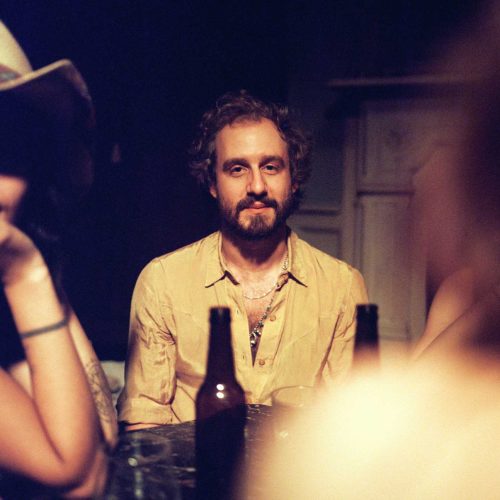Love.
It has been the catalyst and impetus of the vast majority of art since some short time after our ancestors covered the walls of Lascaux and Chevaux caves with the earliest forms of artistic expression.
Often – too often – musicians opt for the easy path of beating the long-dead ‘my heart is broken and no other will ever measure up to the love I’ve lost’ horse. Relatable? Only to those with a pulse. Interesting and impactful? Not remotely.
Enter singer-songwriter Matthew Houck, A.K.A. Phosphorescent.
After months of touring behind his fifth album, Houck returns to Brooklyn to find most of the central elements of his life fully engulfed in flames. His long-beloved home/studio in Brooklyn has been rezoned and must be vacated. Life on the road has reduced his relationship to unidentifiable ash, through which he’s left to sift and search for some semblance of worth. So, at 4:00AM on a Thursday, he does what any artist with integrity would do, and books a flight to Cancun that leaves in 2 hours.
Houck settles in a hut on the beach 110 kilometers south of Cancun, in the (not for long) small village of Tulum. Armed with a guitar, notebook, and a pen, he sets out to map his current situation through sketching what will be a warmly-received, critically heralded LP, Muchacho.
Houck’s efforts naturally turn to a postmortem examination of his failed relationship and the dusty crossroad at which he stands. While most artists would be content to wallow in defeat or cry into their tequila, Houck chooses the path less beaten – defiance.
“Song for Zula” is, without doubt, a battle-cry-turned-victory-march of a song. It dares the listener to unleash this monster called love, stare it down, and urge it to go for the jugular, as he claims
You will not see me fall, nor see me struggle to stand
To be acknowledged by some touch from his gnarled hands
As the song – and Houck’s defiance – progress, a different kind of animal circles, not unlike a shark, parallelling the shoreline, duck diving the waves of strength just before they crash: exhaustion.
A tired-sounding Houck approaches the exit after ripping a lethal strip off of love, leaving one last note, perhaps a warning to his future self, or to love itself, promising
My heart is wild and my bones are steel
And I could kill you with my bare hands if I was free
As long as there is heartbreak in the world, “Song for Zula” will lay in wait, prepared to pounce at anybody ready to stand up, dust off, and put one blistered foot in front of the other.







